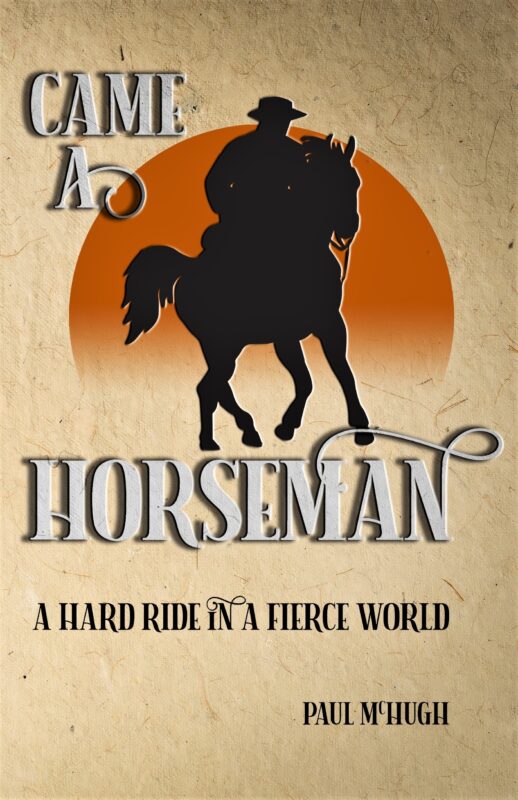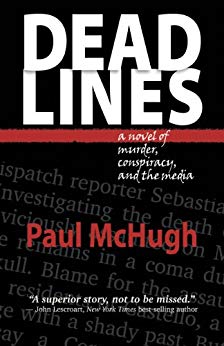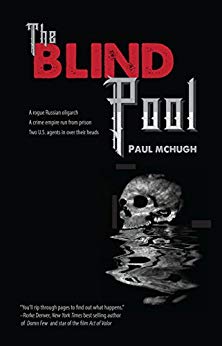
Boredom is a fabulous state of being.
Because if you’re bored, it signifies that you’ve become swamped by possibility.

Perhaps you think it’s more appealing to rave about some sort of pursuit of excitement. However, much of the appeal occurs because that type of raving is way-y easier to pull off. I know this because, as a former outdoor sports writer, I’ve done my share.
So I can tell you that adrenalin offers just one more fleeting biological drug high, and any avid pursuit of it is as likely to put you in a muddy ditch as it is to install you up in the sky, gleefully flitting about in a wingsuit.
Here’s a hard, basic truth about life: most of it is a slog.
And the heartbeat of any great slog is boredom.

A further corollary: virtues that empower a slog tend not to be the same ones that serve your excitement.
That’s especially true of the writing craft. Sure, after years of prep and mental conditioning, a writer can indeed manage to enjoy an exhilarating “flow” state from time to time. On such a day, he or she can slap the keyboard around with the vigor of an improv jazz pianist tweaking on Benzedrine, and spin out many pages of apparently clean, sparkling prose that seem to demand minimal revision or polish.
However, those days stand in sharp contrast to a huge heap of another sort, days when your words puddle limp and motionless upon the page or on a computer screen—like a pond full of dead flatworms, moribund beyond any hope of resuscitation. At such a point, words resemble nothing so much as the inert, two-dimensional clumped-up letters that they so objectively are.
What shall you do then? Slog on, my friend.

A STOWAWAY ON THE ENDURANCE
I can say exactly when I decided to run a marathon, due a chance encounter.
Out to cover the Napa Valley Marathon race for the San Francisco Chronicle, I had special permission from event organizers to ride my BMW motorcycle up and down a roadway called the Silverado Trail. I took my notes as this competition proceeded by reciting them into a digital recorder that I’d tucked under my helmet whilst I tracked the back-and-forth shifts of this race’s front runners, both male and female.
I managed to put myself right at the finish line as they crossed. I watched the wild celebration of family and friends, as well as the hilarity that ensued when the victors sat perched in a giant balance-beam scale to have their body weight matched by a heap of bottles of the best Napa vintages.
I reckoned my story’s raw materials were fully in the bag, and felt more than ready to putt on home and write it up. Yet then came a rogue impulse to ride back along the course and see who else might be struggling to arrive at the end. After all, I thought, this race ain’t only about those glorious hares. How might all them plucky tortoises be doin’, way back there?

My ride back along the course revealed a thin dribble of runners still gamely grinding on toward the finish. This almost literally was a parade of the lame, the halt, the sick and the blind. I watched people hobble along with no hope at all of making it in before the six-hour event window closed. Yet with glassy eyes, clenched jaws, and limping gaits, they kept on a-goin’.
Their joint determination utterly bowled over me over. I realized there were many ways to define victory. As many ways, in fact, as there were participants. Each person was rising to his or her own challenge as best they could. And I chose right then to start to train myself for a marathon. If I did, and stuck to it… Heck, by next year I could be a runner in the Napa, too!
JACOB’S LADDER, RUNG BY RUNG
I can’t say exactly when I decided to become a writer. Actually, at first, I just aimed to be a storyteller. A person who could spin a yarn, or render a poetic sentiment, or offer a joke that other people might pay heed to. I’d found I wasn’t much good at casual conversation with my peers, so I put all my focus on crafting prepared remarks. That began my true wrestle with language. I attempted to force it to accomplish miracles on a page. As soon as I earned a minor success, my fate became sealed.

I intuited early on that full commitment was the sole power that could result in any larger victory. I decided that I would only relax my grip upon my pen when—like Charlton Heston’s musket—it got pried from my cold, dead fingers.
Okay, yeah, I know, I more-or-less disparaged words as “two-dimensional” in a paragraph just above. And it’s true that very few words, when trotted out all by their bare naked lonesome, accomplish much. Like notes in music, words only acquire ultimate strength and meaning via an arrangement, when they establish a complete and complex relationship with many other words.
It’s similar with letters, of course. In English, we have just 26 of them available for our use. But that tiny, tidy sum, endlessly rearranged, can produce magic spells that cause visions to dance in human forebrains. Start out with our two dozen-plus integers, play around with ‘em a bunch, and you might end up a few years later with “Huckleberry Finn” or “Moby Dick.”

A writer must befriend these few letters and all those words, realize their inherent qualities of rhythm, texture and sound. And most of all, embrace every possible dimension of their meaning. You need to fully grasp how and why they’ve arrived on your desktop all ready and willing to fight another round, even if burdened by centuries of prior bouts.
I knew that mustering and drilling these verbal recruits so they could march into sentences and paragraphs, then pages and books, might mean a protracted struggle. And in fact, after decades at it, I can reliably report this battle is not merely long, but endless. Which is the good news! Since, “Ars longa, vita brevis,” as the ancients used to say. Life is short, yet art is eternal. Therefore, seeking to acquire, master and perfect any art soon turns into a lifetime project.
You couldn’t foster a better scheme for keeping a robust cranial workout underway if you tried.
PICK YOUR PACE

Since the cutoff time for finishing the Napa Marathon is 6 hours, I set a training goal of being able to run out and back from my house to a high ridge called Skyline in 5.5 hours. This would be a 20-mile round-trip with some 2,000 feet of elevation gain. I figured if I could pull that off, I’d be good to go for the Napa. And the day after I turned in my story, I began to nibble on that training routine.
And I kept chewing on it, upping time and distance each week, despite any shortcoming in mood or motivation, or a surprise onslaught of nasty weather, a pain in my legs or shortness of breath. If I felt my will start to fade, I called to mind the determination on the faces of those late-finishers I’d observed at the prior event. That seemed a good and effective remedy.
But eventually, I saw it was only one bit in the overall category of mental magic that might enable me to keep pressing onward. It was just a single star from my whirling inner galaxy of self-talk. I spotted others that shed still more light.
I noted that if my cycle of brain chatter took on any tone of pessimism or depression, my performance would correspondingly suffer. On the other hand, if I steadily fed myself positive messages, more often than not I would handily meet my goals for a particular jog. Interestingly, it didn’t seem to matter if I contrived a phony script and then fed it to myself. For example, if my calves or feet started to cramp, I would pause to stretch them while telling myself, over and over, “This is all very pleasant…”

After it put me back up on my pins, I’d chuckle at my ability to bullshit myself into continuing to run.
And the following year, I trotted over the Napa’s finish line just fifteen minutes ahead of the cutoff time. After that event, I did one more marathon and a dozen more halves (nine of these in training). Each event was an object lesson in how far you can go by just plopping one foot in front of the other.
NO LINE OF WRITING IS A WASTE
The quality of your self-talk is a key to plodding onward, no matter what your endeavor might be.
Even if writing is dreadful, you still may learn from it, whether it’s your own or someone else’s. When it’s bad, just ask yourself, exactly why is it bad? And if it sucks, how then might a dedicated scrivener de-suckify it? Every scant improvement is one more step toward the might and the right and the light. Put a whole big bunch of eentsy improvements together, and viola! You might well finally wind up with an exceptional piece.
However, even if you don’t end up with anything that’s at all useable, you can still take a dose of encouragement from the fact that you’ve exercised your writer’s mental mechanisms. Plopped your chips down on the red square of hope. Ramped up your facility with language. Perhaps by only a smidge, but many smidgens fill a reservoir that one may tap into later. All writing is practice for other writing. Consequently, your harvest from failure can be much more than just a heap of wadded-up paper in a wastebasket.
Look, it’s not like you don’t have the rest of your life to get good at it. You do!
UP AGAINST ALL THE WALLS

I spent about ten years learning the art of rock-climbing. The reason I did that is, once upon a time I got stuck all by myself high on a remote wilderness cliff. Whereupon I realized I had no clue how to save my own fucking life. I’ll write up that yarn in full some day, but for the moment I’d like to push straight on to an output: I sent myself to the Yosemite Mountaineering School for a weeklong seminar on the climbing basics, and followed that up with a bunch of carefully scripted vertical outings until finally I was able to competently ascend a multi-pitch, 5.10b-rated route.
At which point I declared my learning project done, then gave away all my gear.
Without getting too metaphorical about it, let me say that a straightforward climbing challenge offers simple wisdoms that, once learnt, apply easily to other activities.

For example, it’s common to feel daunted if you stand at the bottom of a tall, sheer rock wall, like those seen at Glacier Point, Half Dome, Washington Column and El Capitan. Tilt your head back, try to take in the whole project and imagine yourself reaching a high ledge or even the summit… And suddenly, chucking your gear rack and rope coil right back into the trunk of your car and driving over to a bar for a foamy pitcher of cold ale and some hours of hangin’ with your pals might seem a much, much better idea.
But conquering the whole bloody climb in one throw (unless you’re Alex Honnold) ain’t the deal. If you’re a mere mortal, and you decide to climb anyway, your job isn’t teleporting to the summit. It’s simply looking for your first handholds, a second handhold, one foothold and then your next, and the next, etc.
Often your progress shall be measured not in feet, but in fractions of an inch. Sometimes you’ll have to downclimb and go sideways to solve a problem. And you have to connect with the process and be entirely content with it.
Because you’re trying to negotiate with a granite monolith that insists it’s been what it’s been in the shape that it’s been for millennia. No degree of begging is going to make it pop out a staircase.
Hey there! Optimistic yet highly temporal human force? Meet an extremely stolid object that doesn’t care at all what you think about it, or indeed anything else.
Much like a blank sheet of paper.
My point is, in the same way that atoms compose molecules, any small effort added to others makes for larger achievements. Nobody gets to pole vault up El Capitan, and nobody jet-packs up it either. At least, not yet they don’t. As a guide once told me, you can’t bullshit a mountain. Even if you’re free-soloing without any rope protection—or maybe especially if you are—you’ll still need to engage in hand-to-rock combat, and your ascent will be marked by many wee increments of problem-solving.
ADOPT A SIEGE MENTALITY

To extend my metaphor a tad further (hopefully without making it topple over) the best comparison to writing books is not some brisk day-climb, but a multi-day, multi-week, or even multi-month assault that requires going over and over the same ground until you know it better than the back of your hand.
Much as the hero Warren Harding put together the first successful ascent of the nearly 3,000 vertical feet of El Capitan in 1957. He and his partners (he did burn through a few), scouted the route via binoculars, guessed at a line, tried it, shifted to variations, fixed ropes up to certain points, climbed these pitches over and over, and finally made one epic push for the summit before winter set in.

Harding only got to the top on the final push because he spent 12 straight hours standing in slings, drilling holes with a star drill and hammer to set bolts in a particularly blank, overhanging rock face through a long cold night, working only by a headlamp’s feeble gleam.
He conceded that most of the work of putting up the Nose Route on El Cap was, “monotonous.” He also said, “I can’t do much, but I can do it forever.”
Now, there’s a great motto for a writer!
WORMING THROUGH THE BOOKS
An essay, an article, a review, a short-story—those are mere day-climbs. Books are siege climbs.

When I scribble novels, I find myself making multiple journeys through the text. How many? I have three answers to that: a) countless, and b) it doesn’t matter, and c) whatever seems required.
The first run through establishes character and plot, the second tries to promote consistency, the third seeks to make the wording more felicitous, the fourth figures out the chapter breaks and tries to build a psychic bridge between them, the fifth looks for copy edit errors to correct, the sixth returns to characterization and plot, unweaving and reweaving scenes until they make sense and yet can still surprise, the seventh might be all about overall pacing, and so on and so on…
Perfection is elusive. However, I always strive to arrive a notch or two or maybe a few above my notion of basic acceptability.

How do I keep on a-goin’ till I get there? At the end of the day, I pour myself a chalice of red and repeat to myself, “This is all very pleasant.”
And remember: If boring wasn’t useful, we wouldn’t have any subway tunnels.








